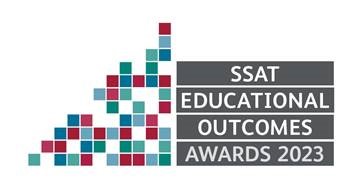A Level Music
Entry Requirements: Grade 6 in GCSE Music or Grade 5 Theory or Grade 6 Instrument/Voice If you do not meet the above requirements places will be considered on a case by case basis
Exam Board: EDUQAS
Course content:
There are three main areas that are assessed at A-level in music:
Performance, Composition and Music Appraisal
At A-level, candidates will be allowed to specialise in either Performance or Composition, with the chosen discipline making up a greater percentage of their final grade.
Musical Skills: · Aural perception (listening) · Practical (performance) · Creative (composing)
Music is an exciting and dynamic choice of course at A-Level, comprising the three main disciplines. The music A-Level challenges you to develop as a practical musician through performance; to demonstrate theoretical creativity in the composition coursework you produce; and to assess the growth of musical styles and genres through study of the musical techniques employed by composers alongside the social and historical contexts in which they developed their music.
Assessment:
- Performing: Option A: A performance of 10-12 minutes consisting of a minimum of 3 pieces. One of these pieces must be as a soloist. The other pieces may be either as a soloist or as part of an ensemble or a combination of both.
- Option B: A performance of 6-8 minutes consisting of a minimum of 2 pieces either as a soloist or as part of an ensemble or a combination of both. Both options are assessed by visiting examiner.
- Composing: Option A: Two contrasting compositions totalling 4-6 minutes, one demonstrating techniques of the Western Classical Tradition in response to a brief set by Eduqas, and one free composition.
- Option B: Three compositions totalling 8-10 minutes. In addition to the two set out above the third composition should reflect the musical characteristic of one different area of study (i.e. not the Western Classical Tradition). Externally moderated.
- Appraising: A written exam covering three areas of study: Area of Study A: The Western Classical Tradition (The Development of the Symphony 1750-1900) Area of Study C: Musical Theatre Area of Study E: Into the Twentieth Century The listening exam includes questions on unprepared extracts, detailed analysis of prepared set works, an essay to assess understanding of the Development of the Symphony and aural perception questions.
Career Value
This course would be of value if you were considering one of the following careers: professional musician (performer), working with sound/music technology, composer/arranger, conductor, career embracing the expressive arts, e.g. musical theatre, music teacher, primary school teacher, music librarian, arts administrator. There are also more jobs than ever in music business related areas, such as: careers in digital marketing, social media, PR, technology, label services, ticketing and merchandising. It is common to find music graduates in consultancy, finance, banking, music therapy and legal jobs. It is also of great value to those who wish to pursue an academic path, as the University of Cambridge considers it as of the same value as A-Level English Literature, Languages or Humanities subjects.
The A-Level Music course at Bishop Thomas Grant is challenging and rewarding. The students who choose it should be committed to their musical studies, whether they have a view to further study after A-Level or simply wish to develop their passion for the subject.
The course will develop your skills in all areas through the study of music from the classical and popular music traditions. The aim of this course is to develop your abilities as an intelligent musician. It is structured around 3 units which are linked together by various Areas of Study.







